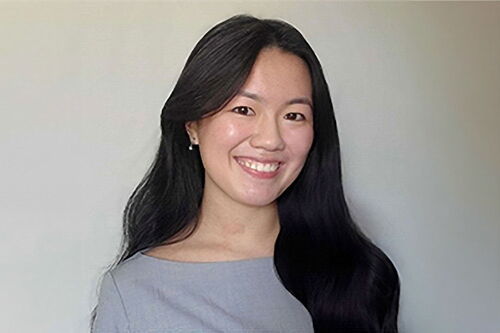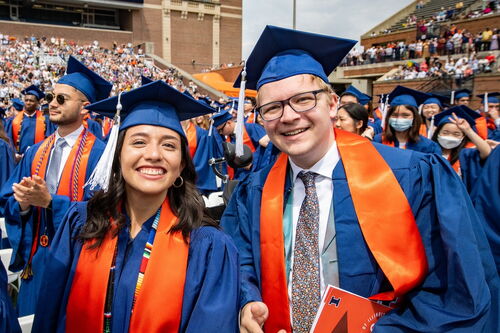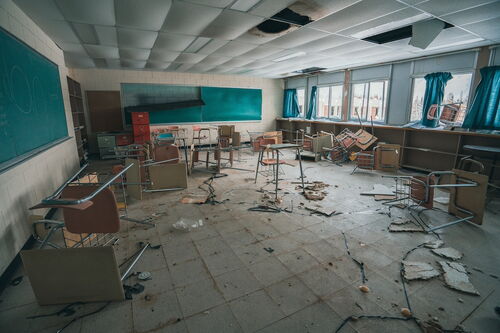New faculty launch their careers on campus
The College of LAS welcomed 53 new tenure-track professors for the 2023-24 academic year. The new positions range from assistant to full professors in almost 24 academic units, ranging from Asian American studies to religion, sociology, statistics, atmospheric sciences, and several others.
Most of the faculty members started their new roles at the beginning of the fall semester, but some arrived later in the semester or are scheduled to start in January.
We’ve selected a few to profile to display the variety of disciplines represented in the group. A full list of new faculty follows.
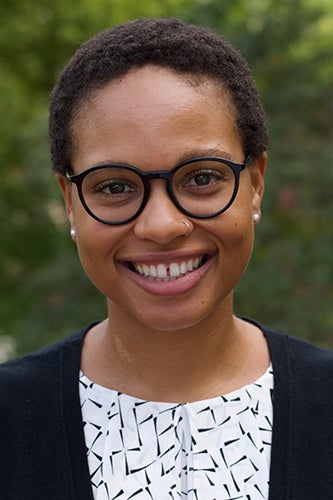
Kendra Calhoun, Department of Anthropology
While she long aspired to be a teacher, Kendra Calhoun’s education, research, and experience in linguistics helped her refine her career goals to become a professor. This fall she became a faculty member in the Department of Anthropology.
Calhoun earned a PhD in linguistics at the University of California, Santa Barbara, before moving on to the University of California, Los Angeles, to complete a postdoctoral appointment in linguistic anthropology.
While the University of Illinois is distant from where she grew up in Pennsylvania, Calhoun doesn't feel too far from home as both of her parents are proud Illini alumni. Calhoun recently gave them another point of pride by becoming an American Council of Learned Societies (ACLS) Fellow. As a fellow, she is spending her time this fall researching and making connections with other faculty members. She is also exploring life in the Midwest and has taken a liking to life in Urbana-Champaign.
“I'm very excited for a different change of pace,” Calhoun said. “So far, I really like being able to walk lots of places, with a lot less traffic. Everyone's been really friendly.”
Calhoun is pursuing research opportunities on campus to better understand the language and culture of Black communities. Specifically, she examines what we can learn from how people use social media.
Calhoun’s research reveals the relationship between linguistics and digital communities. She examines the Black TikTok community and how it gives space for users to represent their identity while functioning as a community through interconnected gestures, words, body language, and other forms of communication.
Calhoun hopes to bring a perspective that inspires passionate work and discussions in her field.
“I really love teaching. I love working with students,” Calhoun said. “I love the opportunities for collaboration that you get in academia, not just within the department and across the university, but also across different universities. I think there are just some things in in academia that you can't really replicate anywhere else.”
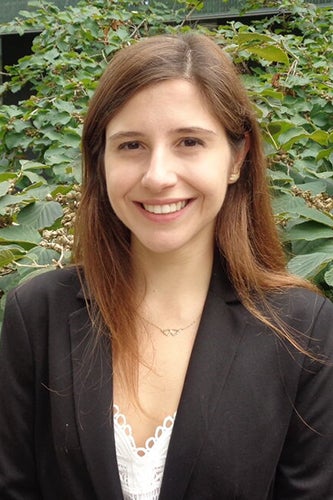
Gökçe Dayanıklı, Department of Statistics
Just last year, Gökçe Dayanıklı received her PhD from Princeton. Now, she has begun her role as a professor for the Department of Statistics. “I think it’s a great school,” she said.
Dayanıklı is from Izmir, the third largest city in Turkey and one of the oldest cities in the world. She moved to Istanbul to attend Bogazici University, where she earned an undergraduate degree in industrial engineering with a minor in economics before going on to get her master’s and PhD in operations research and financial engineering at Princeton.
Right before coming to Illinois, Dayanıklı worked as a term assistant professor for the Department of Statistics at Columbia University. Dayanıklı came to Illinois because she felt like she would be supported here.
“People are very kind, very nice and supportive,” she said. Dayanıklı now looks forward to collaborating with colleagues and students. Her main research interest is in mean field games and control. These topics deal with making strategic predictions and decisions – similar to what happens in sports or board games.
“I’m interested in the interactions of large numbers of agents,” said Dayanıklı. One of the papers she contributed to focused on finding optimal social policies for epidemic control for large populations. Specifically, she is passionate about finding optimal policies that align with the ambitions of a population.
“Those things, in terms of motivation, were very interesting to me,” said Dayanıklı. She has started to connect with colleagues on campus and has been involved in some seminars in the Coordinated Science Laboratory.
“For research, there is a lot of collaboration opportunities (here),” said Dayanıklı. “I would like to be in a collaborative environment where I enjoy doing work with people I enjoy working with.”
She is also interested in collaborating with researchers in engineering, biology, and psychology. “I’m interested in different applications,” Dayanıklı said. She also hopes that she can include students who can help her with her research.
As for daily life, Dayanıklı has taken advantage of campus offerings. “I like all the choices of coffee shops,” said Dayanıklı. “It’s a small town but there are many coffee shops that I really enjoy.”
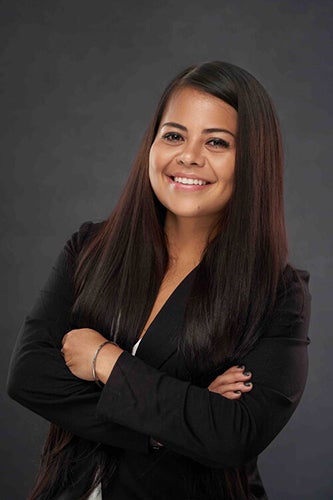
Violeta Rodriguez, Department of Psychology
Violeta Rodriguez is new to the University of Illinois and Department of Psychology, but she’s following a calling that she’s pursued for some time: improving the mental health of youth and their families.
Prior to coming to U of I, Rodriguez worked as a predoctoral intern at the University of Illinois at Chicago, where she further developed skills in diagnosis, assessment, and treatment and served both English and Spanish speaking patients. Predoctoral internship is a residency-equivalent part of training for clinical psychology PhDs. Following the completion of her predoctoral internship, Rodriguez obtained her PhD in clinical psychology from the University of Georgia.
Now living in Urbana-Champaign, Rodriguez has found ample opportunities to grow her research interests. Her work revolves around the effects that family dynamics can have on the mental and physical health of youth.
She developed these interests based on her experience in psychiatry, primary care, and juvenile justice, having worked as a senior research associate at the University of Miami Miller School of Medicine from 2014 to 2023, as a research assistant on an Integrated Primary Care project at Banyan Health Systems from 2013-2014, and as a primary care counselor at the Juvenile Addiction Receiving Facility from 2012-2013.
In these roles, she developed both a clinical and research understanding of health disparities that plague various systems. Now that she has a faculty position, she also hopes to expand the scholarship of people from marginalized backgrounds in her field, working as a professor in the clinical-community area of the Department of Psychology.
“I realized the disparities and the number of youths who were involved with the justice system working as a counselor. And then I also went to work in the community as a research assistant, where I noticed more disparities. That was a physical health primary care merger with mental health,” Rodriguez said. “I then started a job at the University of Miami Medical School, and then I realized how there were so few professors from marginalized backgrounds. It really opened my eyes to the multiple levels where we were failing people from marginalized backgrounds, and how we could be doing more.”
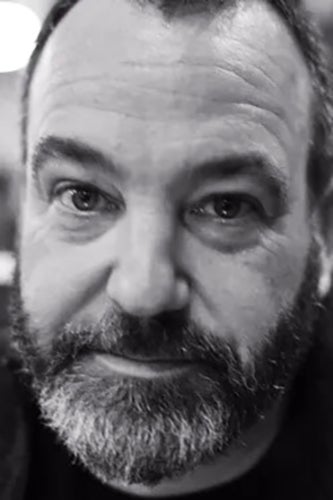
Kevin Scharp, Department of Philosophy
Kevin Scharp is bringing one of academia’s oldest disciplines to bear on some of society’s newest technology. He has joined the University of Illinois as a professor of philosophy and director of philosophy research, with his work focused on artificial intelligence and machine learning and language.
Scharp arrived in Champaign from Scotland, where he worked previously as director of the Arché Philosophical Research Centre and supervisor of the Conceptual Engineering Research Seminar. His wife, Alison Duncan Kerr, is also a new faculty member in the Department of Philosophy. She is a feminist philosopher whose research focuses on emotion theory and how emotion contributes to our rationality. They have three children.
The transition from living in the United Kingdom to living in the Midwest began over the summer and Scharp has been enjoying the change of the pace.
“We like the neighborhood. We like the neighbors (and) love the community. The university has been tremendously welcoming and supportive,” Scharp said. “The department has been extremely welcoming and a really fruitful place to do work.”
Scharp’s new position blends philosophy with mathematics. He graduated from Washington University with a bachelor’s degree in mathematics before getting his master’s in philosophy at the University of Wisconsin-Milwaukee and a PhD in philosophy at the University of Pittsburgh.
He teaches Minds & Machines and a graduate seminar.
“I love seeing the students have a light bulb going over their head, like when they really get something,” Scharp said. “They’re struggling and finally they get it. It’s such a nice feeling.”
Scharp has been working with colleagues to create a new certificate in the ethics of artificial intelligence. He said that he looks forward to building further interdisciplinary academic connections and exploring his research themes.
“I feel kind of like a kid in a candy store because there's so much good stuff going on here,” Scharp said. “So, I'm excited to be interacting more with people in computer science and psychology and other disciplines.”
A full list of new faculty follows:
Mukhtar Ali, Department of Religion
Joshua Barbour, Department of Communication
David Beck, Department of History
Mónica García Blizzard, Department of Spanish & Portuguese
Keva Bui, Department of Asian American Studies
Angela Calcaterra, American Indian Studies Program
Kendra Calhoun, Department of Anthropology
Donald Casler, Department of Political Science
Daniel Cooney, Department of Mathematics
Gökçe Dayanıklı, Department of Statistics
LaKisha Tawanda David, Department of Anthropology
Jennifer Delfino, Department of Anthropology
Kelvin Droegemeier, Department of Atmospheric Sciences
Théo Durandard, Department of Economics
Tolulope Fadina, Department of Mathematics
Majed Fataftah, Department of Chemistry
Laura Frances Goffman, Department of History
Walker Horsfall, Department of Germanic Languages & Literatures
Pei-Ken Hung, Department of Mathematics
Zalika Ibaorimi, Department of Gender & Women’s Studies
Felix Janda, Department of Mathematics
Alison Duncan Kerr, Department of Philosophy
Benedek Kurdi, Department of Psychology
Christina Kamis, Department of Sociology
Chu-Young Kim, School of Molecular & Cellular Biology
Christy Landes, Department of Chemistry
Stephan Link, Department of Chemistry
Haiting Ma, School of Molecular & Cellular Biology
Kimberly Mack, Department of English
Anastasia Manesis, Department of Chemistry
Aleksandre Maskharashvili, Department of Linguistics
Tess Dorothy McNulty, Department of English
Alejandro Ramírez Méndez, Department of Spanish & Portuguese
Brittney Miles, Department of Sociology
Dominik Mischkowski, Department of Psychology
Jake Rasmussen, Department of Mathematics
Sarah Rasmussen, Department of Mathematics
Kimberly Michelle Rios, Department of Psychology
Violeta Rodriguez, Department of Psychology
Kevin Scharp, Department of Philosophy
Theresa Schoetz, Chemical & Biomolecular Engineering
John Schwenkler, Department of Philosophy
Yunwen Su, Department of East Asian Languages & Cultures
Suzie Telep, Department of Anthropology
Stephanie Thurston, Department of Religion
Stefan Vogler, Department of Sociology
Jida Wang, Department of Geography & Geographic Information Science
Yuexi Wang, Department of Statistics
Xuan Wu, Department of Mathematics
Amanda Young, Department of Mathematics
Ruoqi Yu, Department of East Asian Languages & Cultures
Gan Zhang, Department of Atmospheric Sciences
Boxuan Zhao, School of Molecular & Cellular Biology






